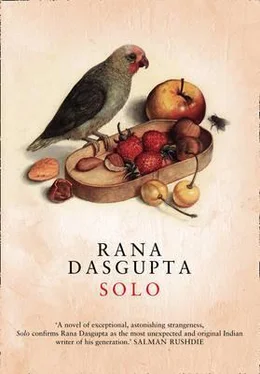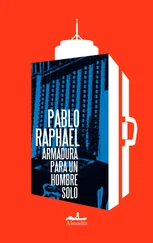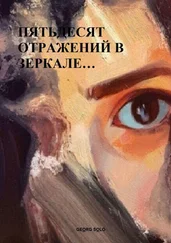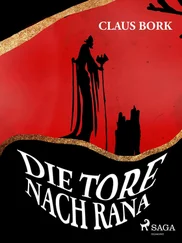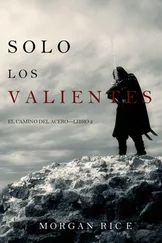The intense new men who arrived in Sofia at that time to build a replica of Moscow made the men from Ulrich’s childhood, the men in suits who had tried to emulate Vienna, look infantile. Vast, wedge-shaped meteors were chiselled for party offices, with steel windows arrayed back towards the vanishing point. They made perfect restorations of the ancient bombed-out churches, and they put up angular memorials to stirring ideals. They liked neat flowerbeds, grand spaces, clear numbering, railings, scientific design, well-laid pavements, and clearings for flags. They liked culture and conversation to happen in the appointed places, and in the street they liked human figures to be evenly distributed, with ample space between them.
Outside the cities they built mighty factories and power plants. They had no affection for villages, where it was impossible to know what people believed; they confiscated animals, equipment and land, and sent everyone to live in the cities. The destruction of the farms and villages took less than five years, and everything that was ancient was cleared away to make room for a scientific nation. Fruit and vegetables, for instance, once the best in Europe, now disappeared from Sofia’s markets, leading to struggles and queues.
Housing projects were built for all the peasants who now arrived in the city, still stupefied from the confiscation of their sheep and cows. Some came with every brick and beam of their old house loaded on a donkey cart, vainly imagining they might recreate it in the capital. But there was no space amid the blossoming offices and schools and hospitals. In the new playgrounds, rocket-shaped climbing frames gave children an early passion for the future.
The former villains were cast in bronze and put up in the parks, and all the stories changed. The paintings of Geo Milev, who had been executed as a traitor, were now put on the postage stamps, and his poetry was taught in schools, while the old murdered prime minister, Stamboliiski, was given a statue outside the opera house. The newspapers claimed it was the Communist Party which had saved the Jews from the fascists, and everyone was speechless with the audacity of it — when it was still so recent and everyone could remember how it really was — but memories altered to fit the books, and many things passed into silence.
Prohibitions stamped out the music. Jazz became illegal — and Turkish music, Gypsy music, Arabic music, and most of the other kinds Ulrich had listened to as a child. Only classical music remained — and the folk music of Bulgarian villages, which Paris-trained composers rewrote for the concert hall, removing all the vulgarity and noise. Ulrich hid away his illegal records, and most of his last musical pleasures with them.
Over the years, an eerie calm descended over the city of Sofia. The trams ran on time, and things were fixed before they were broken. The disdainful glide of the Volga limousines was smooth over the gold cobblestones of the official quarter, the branches of the willow trees fell just so in the parks, and the military-green uniforms of the traffic police were unthinkingly pristine. Beggars, eccentrics and delinquents were deported to the camps, and even on the busiest streets the crowds were somehow well rehearsed.
Ulrich paid a visit, one evening, to Ivan Stefanov, who had been given work as a driver. The mansion had been confiscated, and the family was allotted a cramped and run-down attic for its nine members. Ivan insisted that Ulrich dine with them, and they sat around a long table with their heads banging on the eaves. The family emerged one by one from behind a curtain, where they had stooped in turn to don evening suits and dresses for dinner — though there was nothing except bread, cheese and tomatoes on the table. Old Stefanov was senile in his wheelchair, and dribbled through the meal. Having noticed how Ivan was surreptitiously chided by his wife when he made to serve himself with cheese, Ulrich also refrained from eating, claiming he was full.
15
THEY CAME AT FOUR O’CLOCK in the morning to arrest Elizaveta, and they gave her five minutes to dress. When Ulrich launched himself at them, they beat him with metal bars. There were four of them, in black leather jackets and helmets, and they used the time they were waiting to smash the bookshelves. They kept repeating Fascist as if it had become a reflex.
‘My mother is not a fascist,’ said Ulrich, trying to keep control of his voice. He was lying on the floor with one of the men standing over him. ‘She hated the fascists. She wrote articles against them in the newspapers!’
‘Don’t lie to us.’
‘I’ve met fascists before,’ said one of the men, so young he still had spots on his face. ‘Their houses always look like this.’
They called out to Elizaveta and opened the door to her room. She was standing in her dress. They pulled her out and marched her to the door.
‘I love you, Ulrich,’ she said. The expression on her face was terrifying.
He ran to embrace her, but they pushed him back.
‘Take me !’ he cried. ‘Take me !’
They had a jeep outside. They put her in and drove away.
The communist leader, Georgi Dimitrov, executed his former allies, and the one-party state was complete. The purges were felt in families across the country, and the waiting rooms of police stations were packed with distressed folk searching for the disappeared.
Ulrich does not care to remember the extremes he went through at that time. He did not know where they were holding his mother. He haunted the Ministry of the Interior at 5 Moskovska Street, where the interrogations happened. He circled the central prison. He went to the State Security headquarters, where the colonel in charge of deportations threatened the desperate families with arrest if they did not have authorisation to sit there. He carried a file of his mother’s anti-fascist newspaper articles, which no one was interested in seeing. He grew sick with the uncertainty. He wandered the streets for days, and when he returned home he found Elizaveta’s dog lying dead in her bedroom.
One evening, he received a telephone call from the police telling him that his mother had been sent to the Bosna concentration camp.
It was an eleven-hour train ride to Burgas. He arrived in darkness and waited through the night for the local train, cradling the food and clothes he had packed for her.
The road from the train station to the camp was surmounted by signs saying ‘Hail to the Soviet Communist Party!’ and ‘Long Live the Bulgarian Communist Party!’
Ulrich reached the gate and waited by a small window. A man inside was trying to thread a needle so he could sew a button on his uniform. He was startled to see Ulrich.
‘Who told you to come here?’ he said.
‘I have come to see my mother.’
‘Who are you?’
‘I am … the son of a prisoner.’
‘Have you lost your mind? Get the hell out of here!’
‘Is my mother in this camp?’
The man summoned a guard, who seized Ulrich and led him away.
‘I’ve brought food,’ cried Ulrich over his shoulder. ‘Will you give it to her?’ He struggled against the guard. ‘Leave me alone for one minute!’
An arm was extended through the window, and Ulrich handed over his bag of food and clothes.
The man rifled through the bag. He took out sweaters and threw them back at Ulrich.
‘Comrade, she is old,’ said Ulrich. ‘She will not survive hard labour. Please let her go.’
The man found the letter that Ulrich had written on the way, ripped it into small pieces, and flung them at him.
‘These things don’t go inside,’ he said.
Ulrich picked up the remnants, and got back on the train to Sofia.
Читать дальше
Конец ознакомительного отрывка
Купить книгу
